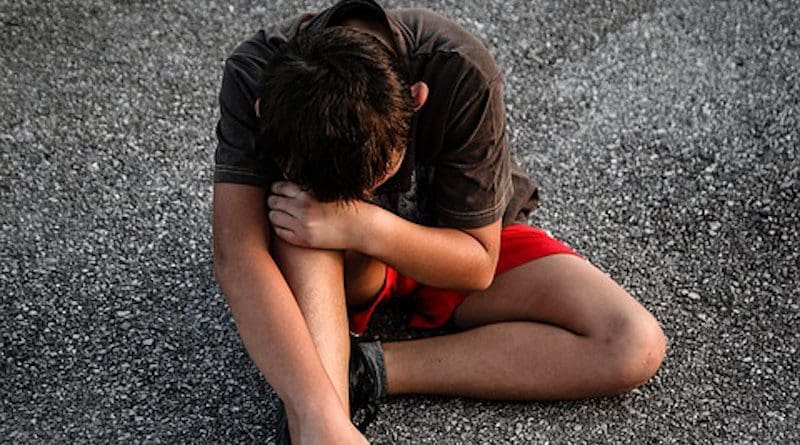
The Dilemma Of Double Standards In US Human Rights Policy – OpEd
By Professor Dr. Arun Kumar Goswami
Every year, the United States publishes various reports on countries other than its own, including the ‘Annual Human Rights Report.’ Such reports cover human rights issues and sensitive topics such as ‘democracy’ and ‘freedom of expression.’ This year, the report documents human rights concerns in nearly 200 countries and territories. But among them, the U.S. was not one of them. Why not? Because it aspires to serve as the world’s “human rights judge.”
However, the report is facing immense criticism from the respective countries. Countries are criticizing the report, pointing out its fundamental flaws, as almost none of the countries mentioned in the report receive pass marks on the scale of the United States.
The Dilemma of Annual Human Rights Report
The “human rights issue” can be used to criticize, threaten, or sanction a country if it adopts a policy that goes against the interests of the U.S. government at a certain point. It reveals that the strategic politics of the United States have a greater weight than actual human rights indicators in preparing this country report. Critics argue that the annual report has nothing to do with human rights but is a tool to malign rivals and coerce other countries. The report is not of the best quality this year as it has fundamental flaws such as misrepresentation, statistical mistakes, and cultural inconsistency. After studying the country report on Bangladesh, many accusations against the report seem genuine.
The foreign ministry of Bangladesh pointed out that it is apparent that the report mostly relies on assumptions and unsubstantiated allegations which are drawn from local and international non-government organizations (including anonymous sources), many of which are supported by the U.S. government or related entities. Again, the report needs to include more substantive evidence or information shared with the U.S. authorities on individual cases.
Traditional allies such as India also hit back at the U.S., citing the U.S. domestic human rights situation. New Delhi said it does not attach any value to a U.S. State Department report critical of human rights in India and called it deeply biased. Pakistan also rejected the report on human rights practices, saying that it is unfair, based on inaccurate information, and completely divorced from the ground reality.
However, this doesn’t necessarily suggest that the global south doesn’t have any cases of human rights violations. Human rights challenges are faced just like those in any other country in the world. But in its annual country reports on human rights practices, the US always points the finger at other countries with an arrogant attitude while ignoring the numerous systematic human rights violations occurring right here at home. The point here is to understand how the U.S. blatantly exercised double standards by exaggerating global human rights realities to advance its global strategy.
Double standards of U.S. human rights policy
The U.S. “Country Reports on Human Rights Practices” have been a tradition for almost 50 years. It is interesting to note that the countries the U.S. considers to be its strategic adversaries are always those who are accused of repression, coercion, arbitrary detention, and inhumane treatment. Any state that refuses to submit to Washington’s dictates is ruled by an authoritarian regime that mistreats its people and endangers democracy, thus covering its violation of those nations’ sovereignty with a moral veil. But, despite widespread domestic demonstrations, Washington’s allies have always been portrayed as committed to upholding human rights. One of those allies is definitely the country- Israel.
The question is raised as to why the United States has always acted as a silent bystander about the human rights violations in Israel. Since the birth of Israel, indiscriminate massacres have been taking place in Palestine with the direct help of the U.S. The massacre that began on October 7 took the lives of 35 thousand innocent people till now. Amid this, the U.S. Congress recently funded $23 billion for Israel to support the genocide.
Not only that, but the entire world was also shocked by the actions of the U.S. police recently, who entered the crowd of hundreds of protesting students and clashed with them, dragged the students to the ground, and handcuffed the female professor. The police raids and arrests at the top universities in the United States, which have always been vocal for the right to expression, protest, and demonstrate, are in stark contradiction with the country’s constitution, university policies, and double standards of human rights.
Shouting slogans of rights and freedom, Washington affirms its adherence to the Universal Declaration of Human Rights (UDHR) and pledges to do everything in its power to make the world safer, democracy stronger, and human rights more protected. But instead of their saying, the actions are constantly questioned. The country nurtures its self-financed tented organizations, which regularly help them with false, half-truth, or fabricated information about their country. Maddened by the addition of new imperialism, the United States is busy contracting human rights in other countries.
Human rights blabbering vs violence at home
The U.S. is frequently called the “Champion of Democracy and Human Rights.” But over the past two decades, as it transitioned to a multicultural society, the country has encountered numerous domestic human rights problems, including institutional racism, hate crimes, and extrajudicial murders by law enforcement. As a result, the U.S. itself violates human rights, making it ineligible to “lecture” others on this subject.
Notably, the guardian of global human rights appears to be struggling lately at home. There are incidents of repetitive domestic gun violence in the United States. Throughout the last year, shootings have continuously made headlines in the media. In 2023, numerous expatriates, including four Bangladeshi individuals, lost their lives due to gunfights in the United States, indicating the country as a death destination for expatriates. Even on 27th April this year, two Bangladeshi men were shot dead in broad daylight on Buffalo’s East Side of New York. These deaths are not only having lasting impacts on victims and their families but also deteriorating the overall human rights situation in the USA.
There are logical reasons to question the right of the United States to speak on human rights issues. The United States invaded Iraq in 2003 under the pretext that Iraq had weapons of mass destruction. It killed nearly 300,000 to 600,000 civilians. According to the research titled “Cost of War” by the American Brown University, 1,740,000 people were killed directly in the Afghan war. 47,000 of them were civilians.
In the United States itself, the way black people are shot dead by the police without trial, strangled with boots on their necks, human rights itself cry out: we can’t breathe. Notwithstanding, America’s hands are full of blood, and the stain of human rights violations cannot be removed even if one pours all the perfumes of Arabia on those hands. Therefore, it is the demand of the time to avoid the human rights blabbering of protecting the interests of the United States in other countries and pay more attention to protecting the human rights of children, teenagers, and expatriates in their own country. Or perhaps the global south should start publishing an annual human rights report on one and only- the U.S.A.

Professor Dr. Arun Kumar Goswami, Director, Centre for South Asian Studies(CSAS), Dhaka; Former Dean, Faculty of Social Science and Former Chairman, Department of Political Science, Jagannath University, Dhaka.
No comments:
Post a Comment